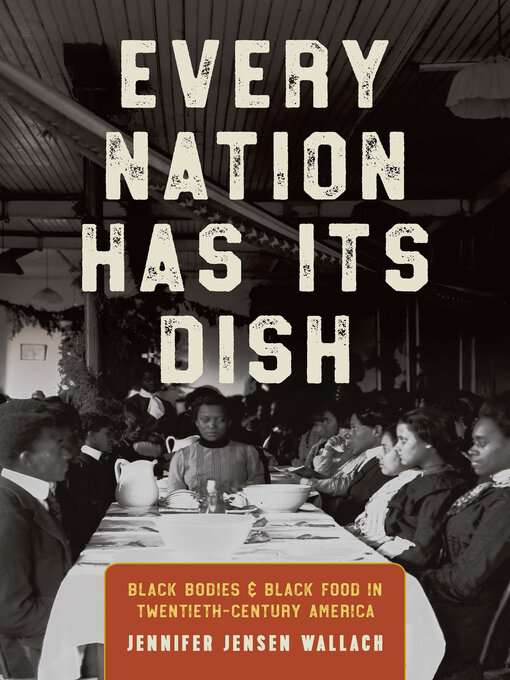- Fiction
- Nonfiction
- Biographies and Autobiographies
- Religion and Spirituality
- Politics
- Fiction Audiobooks
- Spanish Language
- National Native American Heritage Month
- Cooking
- See all
-
Description
-
Details
Directly linking black political activism to both material and philosophical practices around food, Wallach frames black identity as a bodily practice, something that conscientious eaters not only thought about but also did through rituals and performances of food preparation, consumption, and digestion. The process of choosing what and how to eat, Wallach argues, played a crucial role in the project of finding one's place as an individual, as an African American, and as a citizen.

Kindle Book
- ISBN: 9781469645223
- Release date: January 2, 2019
OverDrive Read
- ISBN: 9781469645230
- Release date: January 2, 2019
EPUB ebook
- ISBN: 9781469645230
- File size: 2305 KB
- Release date: January 2, 2019
Directly linking black political activism to both material and philosophical practices around food, Wallach frames black identity as a bodily practice, something that conscientious eaters not only thought about but also did through rituals and performances of food preparation, consumption, and digestion. The process of choosing what and how to eat, Wallach argues, played a crucial role in the project of finding one's place as an individual, as an African American, and as a citizen.

-
Details
Publisher:
The University of North Carolina Press
Kindle Book
ISBN: 9781469645223
Release date: January 2, 2019
OverDrive Read
ISBN: 9781469645230
Release date: January 2, 2019
EPUB ebook
ISBN: 9781469645230
File size: 2305 KB
Release date: January 2, 2019
-
Creators
- Jennifer Jensen Wallach - Author
-
Formats
-
Languages
English
Why is availability limited?
×Availability can change throughout the month based on the library's budget. You can still place a hold on the title, and your hold will be automatically filled as soon as the title is available again.
The Kindle Book format for this title is not supported on:
×- - Kindle 1
- - Kindle 2
- - Kindle 4
- - Kindle 5
- - Kindle 7
- - Kindle DX
- - Kindle Keyboard
- - Kindle Paperwhite
- - Kindle Touch
- - Kindle Voyage
Read-along ebook
×The OverDrive Read format of this ebook has professional narration that plays while you read in your browser. Learn more here.
